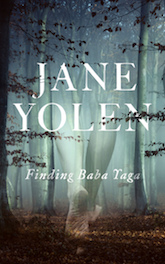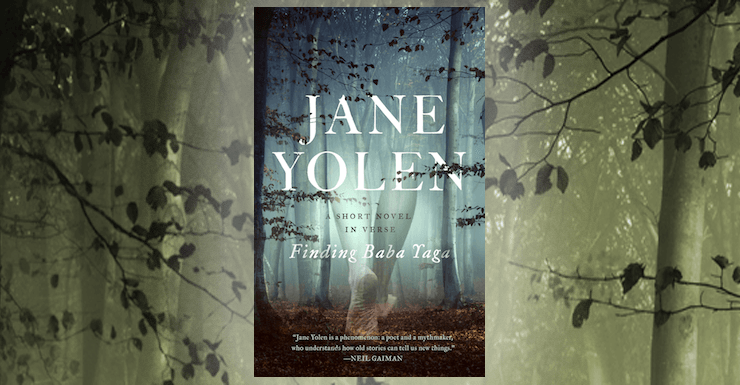This is the story of Natasha. It is not the story of the beautiful Vasilisa and her charming prince, although they might claim otherwise. Nor is it the story of the Baba Yaga, or at least not in the way you think. No, this is about Natasha and how she became herself by becoming someone else.
For Natasha, home is hell. Her father is abusive and angry, her mother fearful and beaten down. When she can stand no more, she flees into the woods. She brings nothing with her but her will to survive. Eventually she stumbles upon a house standing on chicken legs tended by an old woman calling herself the Baba Yaga. She is a “mighty force” of a woman with an unreadable face and a mouth full of iron fillings. Most girls would be afraid of the crone with an iron nose and blunt disposition, but Natasha is not like most girls. Natasha moves in and is put to work. Life is hard, but she’s happy there, glad to be useful and thankful to be respected. All the things her father hated about her, the crone enjoys.
Everything changes when Vasilisa arrives. She is all that Natasha is not, and while their contrasts at first act as complements, soon they become conflicts. And when Vasilisa meets her handsome prince, Natasha’s feelings for her best friend get as tangled as the weeds in Baba Yaga’s garden. Buried between the lines, Yolen hints at Natasha’s growing feelings toward Vasilisa and the unexpected sense of betrayal she feels when the man comes around. But like much of this novella, Yolen leaves the investigation and interpretation up to the reader.
Vasilisa and her prince escape the clutches of Baba Yaga, as they are wont to do. This is a folktale, after all. The princess always runs away and the crone always chases after her. Natasha could flee like her companion, but she finds power and peace under the old witch’s roof. The chicken leg house isn’t a waystation in a larger quest or a chapter in a book but the ending and the beginning all rolled into one.
Now, I’m not one for poems. I don’t dislike poetry, but I don’t especially like it either. There’s no real reason for my disinterest; poetry just isn’t my jam. So it’s a testament to my admiration for Jane Yolen that despite knowing Finding Baba Yaga was written entirely in verse, I still desperately wanted to read it. And now, having circumnavigated it thrice over, I’m so glad I did.
Although it took me a few verses to settle in to the storytelling methodology, once I did everything clicked. I could see what Yolen was pushing, what she left unsaid, and what was left for me to discover on my own. The poems were short but not abrupt, intricate but not delicate, layered but not inexplicable. Yolen reveals so much in just a few brief lines. There’s a whole world in a single stanza.
Peace.
There is no peace
in this house,
only strips of paper,
tatters of cloth,
slivers of glass,
slit lips and tongues.
I pick up the shards
and put me to bed
every night.
Buy the Book


Finding Baba Yaga: A Short Novel in Verse
Jane Yolen is one of the all-time greats. She is one of the biggest voices in young adult fiction and has helped guide and shape it into the juggernaut it is today. Her books are creative, unique, and deeply moving. So too is her latest YA novella Finding Baba Yaga. With a bit of verse, Yolen weaves a remarkable folktale about finding the power within and becoming the person you want to be. In the Foreward, Yolen explains how she was inspired to write this novella after discovering a website featuring Lonely Hearts posts written from the perspective of Baba Yaga, one of her favorite characters from folklore. Some of these poems you may have seen published elsewhere, but they work much better as a whole than individually.
Finding Baba Yaga is like a forest in a snowstorm: harsh, bleak, romantic, and breathtaking. Obviously Yolen knows her Russian folktales because this feels very, very Russian in the best possible way. I hope this isn’t the last time Yolen mixes young adult fiction, folktale adaptations, and poetry. Read it, then read it again.
Finding Baba Yaga is available from Tor.com Publishing.
Alex Brown is a YA librarian by day, local historian by night, pop culture critic/reviewer by passion, and an ace/aro Black woman all the time. Keep up with her every move on Twitter, check out her endless barrage of cute rat pics on Instagram, or follow along with her reading adventures on her blog.










